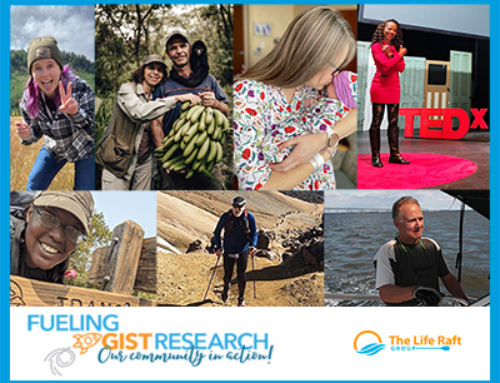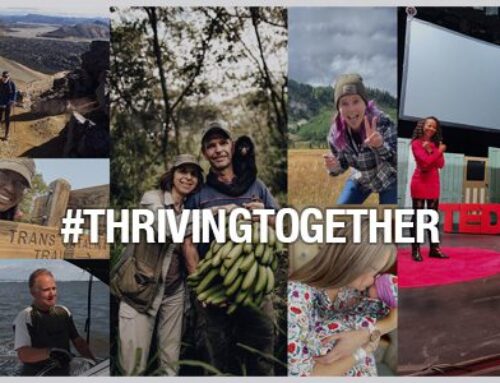The perilous world of dating can become even more complicated when you are living with cancer. This article is the second in a two part series on dating with a diagnosis of GIST. Part one, which was published in the February 2011 issue of the LRG newsletter featured experiences from three GIST survivors, Jason DeLorenzo, Eric Tan & Estelle Lecointe on the difficulties approaching the subject of GIST while dating. Part two covers tips on approaching the subject, a success story and new ways to meet people.
Dating with GIST means that you will have to talk about your cancer with the other person. There are a few different ways to approach the subject of cancer:
- You wait to tell them because you want to get to know them better before you share something that you feel is very personal.
- You tell them right away to get it over with and see how they react.
- You take things on a case-by-case basis and tell people you are dating when the moment feels right.
 There is no right or wrong answer here; each individual must gauge their own situation.
There is no right or wrong answer here; each individual must gauge their own situation.
Pediatric GISTer, Jason DeLorenzo offers one approach “When breaching the subject, I do it casually and pay attention to reactions. Since most of my symptoms are food based, I’ll turn down a dessert and casually say ‘I’ll get sick if I eat that”’, either on the first and second date. They will invariably ask why, and the door is opened. I explain the sickness and answer questions honestly and openly.”
 “If I wait for several dates to speak about my GIST story, then I feel like I am not very honest towards myself and the one I’m dating with,” says Estelle Lecointe, Pediatric GISTer and founder of Ensemble contre le GIST, “Furthermore, I now consider I do not really know who the people really are until they know who I am and what I am doing. When I keep my story secret, I know I also expose myself to an abrupt reaction. Of course, first reaction will be: “It does not matter. The most important thing is who you are.” But unfortunately, most of the time these people will silently disappear without giving you any explanation.”
“If I wait for several dates to speak about my GIST story, then I feel like I am not very honest towards myself and the one I’m dating with,” says Estelle Lecointe, Pediatric GISTer and founder of Ensemble contre le GIST, “Furthermore, I now consider I do not really know who the people really are until they know who I am and what I am doing. When I keep my story secret, I know I also expose myself to an abrupt reaction. Of course, first reaction will be: “It does not matter. The most important thing is who you are.” But unfortunately, most of the time these people will silently disappear without giving you any explanation.”
It’s difficult to open yourself up when facing this issue with a new partner, especially if this situation has gone in a bad direction before. Livestrong.org offers some suggestions that may help if you are having difficulty starting new relationships or are anxious about dating:
Make a list of positive qualities about yourself that make you a good partner.
If you are anxious about rejection, try to imagine being rejected and practice what you might say and how you will handle the situation.
Don’t give up if someone doesn’t share your feelings. Everyone is entitled to their feelings when faced with cancer. American Cancer Society suggests having “the cancer talk” when you and your partner are relaxed and feeling close. “Ask your partner a question that leaves room for many answers. The question gives them a chance to think about the new information and respond, and helps you see how your partner takes this news.”
When you are ready to talk to your partner, some of the issues you may want to discuss are:The possibility of recurrence
- The possibility of recurrence
- Your ability to have children
- Whether your life expectancy is shortened
Before talking about these topics, some people may find it easier to write down what you are going to say or practice with a friend. Learn more about talking with a partner.
“More than the disease in itself, this children thing has quickly become a big issue for me as I realized it could bring a lot of complexity in the setting of a new relationship,” says Estelle.
When faced with such heavy obstacles, Livestrong.org suggests keeping a diary or journal to help you understand and find meaning in what is happening in your life. “Writing down your thoughts and feelings about your experiences can help you feel more in control. It can also help you release emotions like fear and anxiety that you might be holding inside.”
In a recent New York Times article, “Difference Is the Norm on These Dating Sites” by Karen Barrow, this very issue was approached.
One of the article subjects, Sherry Nevius, was a single 52 year old woman living with cerebral palsy, “It’s hard enough to find someone with similar interests,” she said. “Finding someone O.K. with your disability just makes it harder.”
Another subject, Dr. Michael T. Maurer, 57 and living with HIV said that the worst part of dating was the anxiety over disclosing his H.I.V. status.”
Maurer joined an online community of people with H.I.V., “[It] allows relationships to form without the burden of the big reveal hovering overhead.”
“Here everyone knows you have H.I.V.,” he said, “so it gets that barrier out of the way.”
“Awkward issues that come with an illness can be discussed frankly and openly,” Bower posits, “in an online space in which everyone is dealing with something out of the ordinary.”
Some cancer patients have followed this same route. Cancermatch, an online group which offers many support features seeks to tackle this issue. Listed on its website, http://www.cancermatch.com, is the bullet, “Meet new friends and, maybe, even fall in love”
It’s a tall order to fill for someone facing years and maybe even a lifetime of awkward conversations over drinks.
Whether you choose to meet others facing the same obstacles as you, or people you encounter in everyday life, your manner should remain the same, respect your partner while always respecting yourself.
Hope is one of our most fulfilling and fortifying strengths. It’s best to keep it going. As Jason so poignantly points out, “You’ll be sure that when you finally do enter a long term relationship that your partner is truly loving and authentic, thanks to GIST.”



